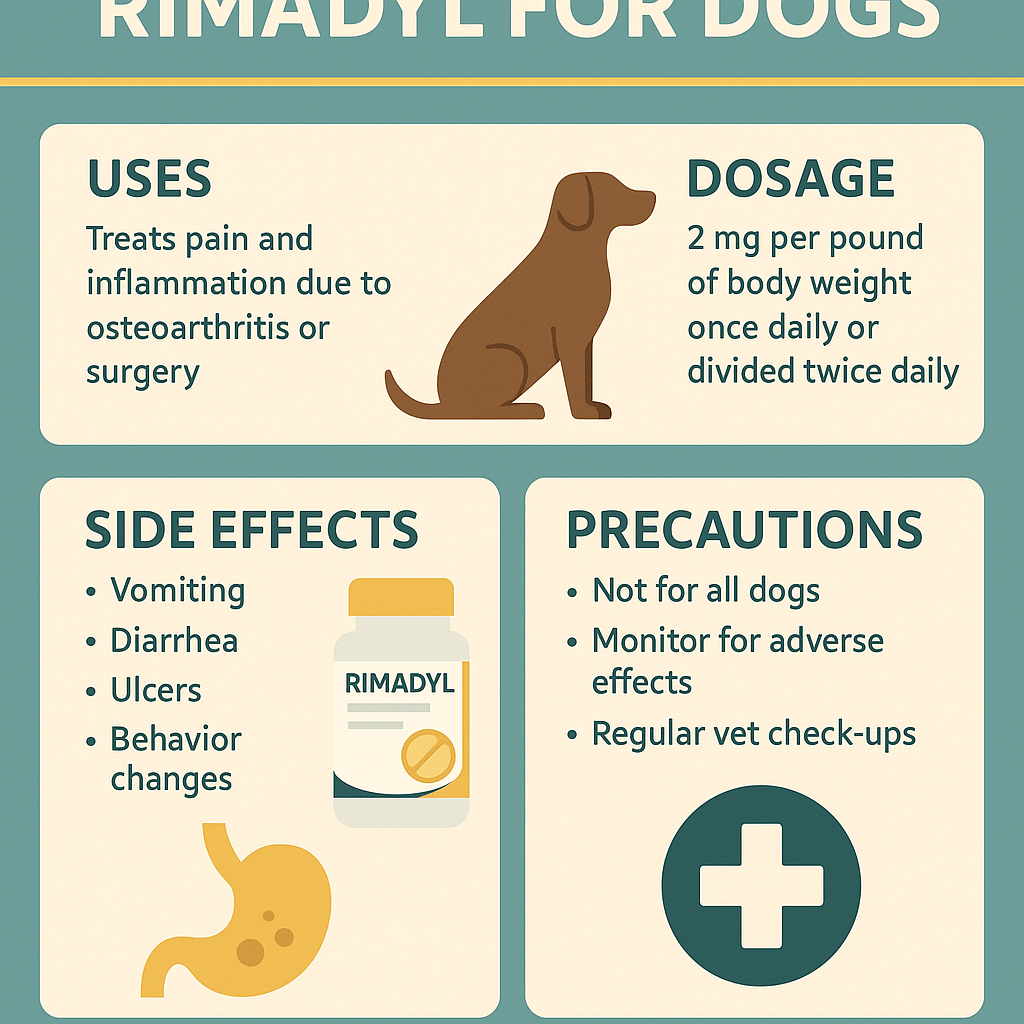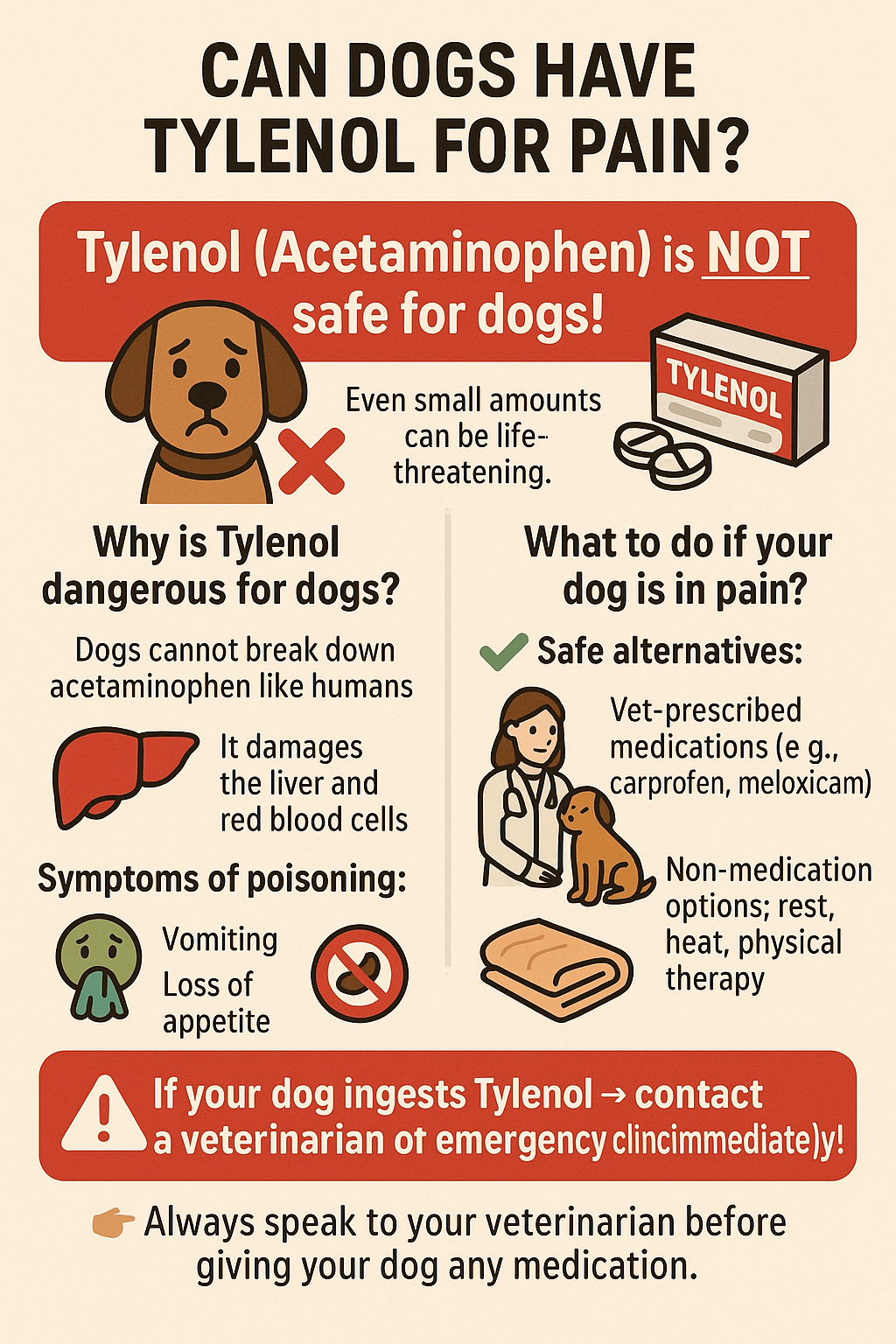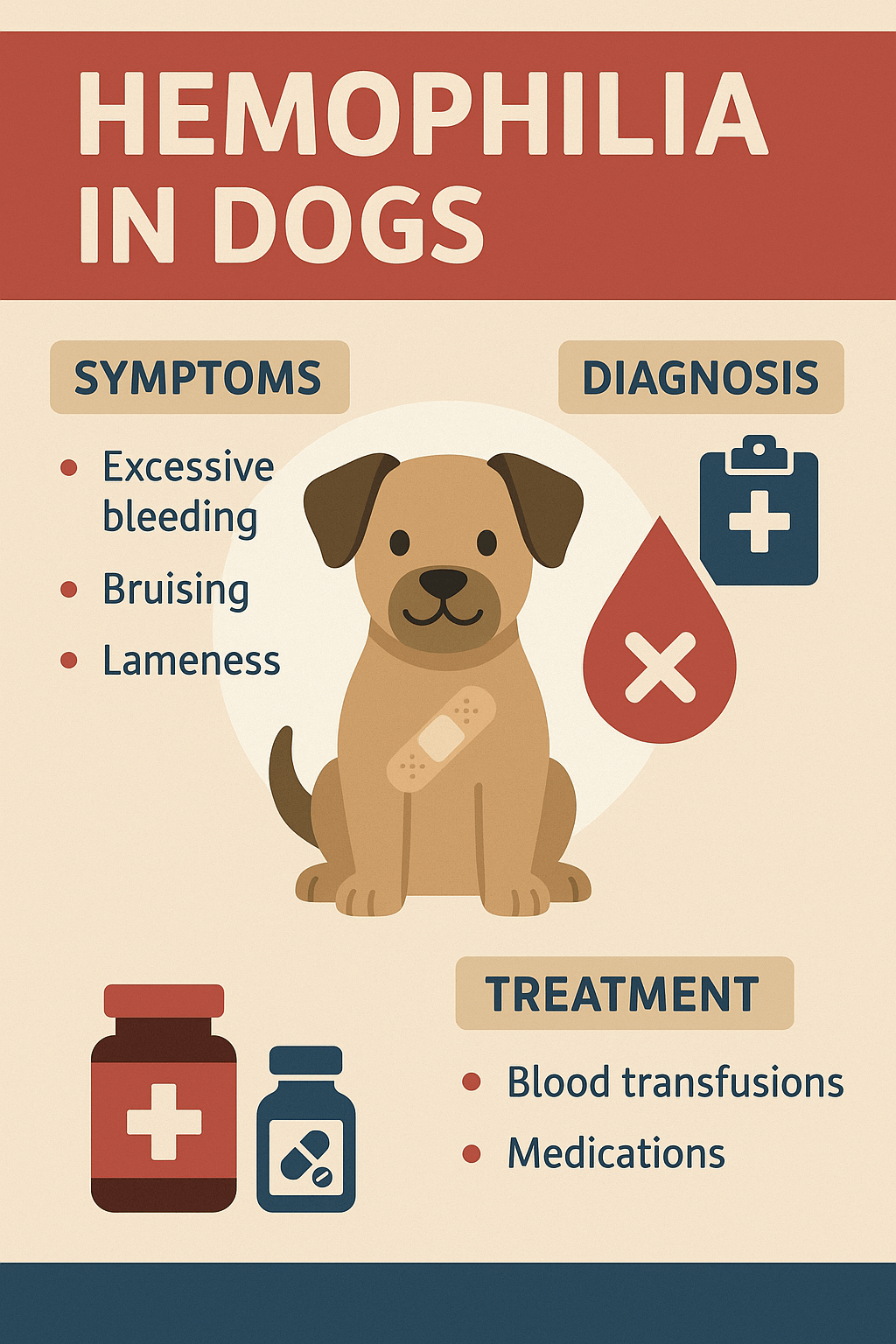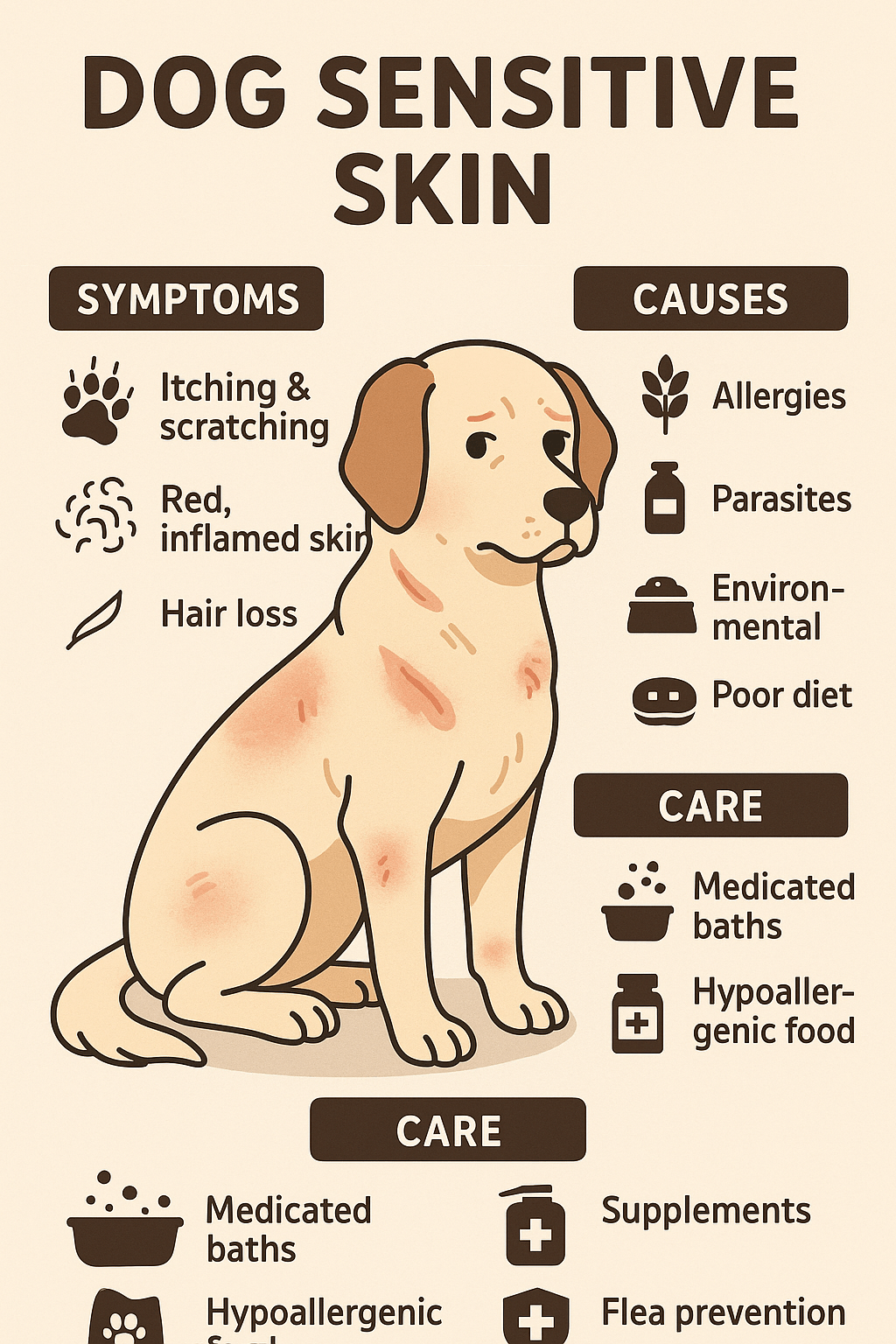Can Dogs Be Allergic to Lamb?
When it comes to feeding our furry friends, lamb is often considered a premium protein source for dogs. It’s rich in nutrients, easy to digest, and commonly found in high-quality dog foods. However, just like humans, dogs can develop allergies to certain foods—including lamb. While lamb allergies are less common than other protein sensitivities, they do occur and can cause a range of uncomfortable symptoms for your pup. Understanding the signs, causes, and management of lamb allergies is essential for ensuring your dog’s health and happiness. In this blog post, we’ll explore everything you need to know about lamb allergies in dogs, from diagnosis to dietary alternatives.
Signs Your Dog May Be Allergic to Lamb
Food allergies in dogs often manifest through physical symptoms that can be mistaken for other health issues. If your dog exhibits any of these signs after eating lamb, it may indicate an allergic reaction.
Itchy Skin and Hot Spots:
Persistent scratching, licking, or biting at their skin could signal an allergic response to lamb.Ear Infections:
Recurring ear infections, characterized by redness, odor, or discharge, are common in dogs with food allergies.Gastrointestinal Issues:
Vomiting, diarrhea, or excessive gas may occur if your dog’s digestive system reacts poorly to lamb.Red or Inflamed Paws:
Swollen, irritated paws are a telltale sign of food allergies, as dogs often chew on their feet to relieve itching.Chronic Ear or Skin Yeast Infections:
Yeast overgrowth in the ears or on the skin can result from an underlying food allergy.
If you notice these symptoms, consult your veterinarian to determine whether lamb is the culprit behind your dog’s discomfort.
Common Causes of Lamb Allergies in Dogs
While lamb is generally considered a novel protein, some dogs can still develop allergies to it. Understanding the potential causes can help you prevent or manage these reactions effectively.
Genetic Predisposition:
Certain breeds, such as Retrievers, Bulldogs, and Terriers, are more prone to food allergies due to their genetic makeup.Overexposure to Lamb Protein:
Feeding lamb-based diets too frequently can increase the likelihood of developing an allergy over time.Immune System Sensitivity:
A hyperactive immune system may mistakenly identify lamb proteins as harmful invaders, triggering an allergic reaction.Poor Gut Health:
An imbalance in gut bacteria can make dogs more susceptible to food sensitivities, including those involving lamb.Cross-Reactivity with Other Proteins:
Dogs allergic to other meats, like beef or chicken, may also react to lamb due to similar protein structures.
By identifying these factors, you can take proactive steps to minimize the risk of lamb allergies in your dog.
Check this guide 👉Understanding Dog Seasonal Allergies: Best 7 Expert Tips!
Check this guide 👉Does Honey Help with Dog Allergies? Best 7 Expert Tips!
Check this guide 👉Dog Allergy Testing: Best 7 Expert Tips!
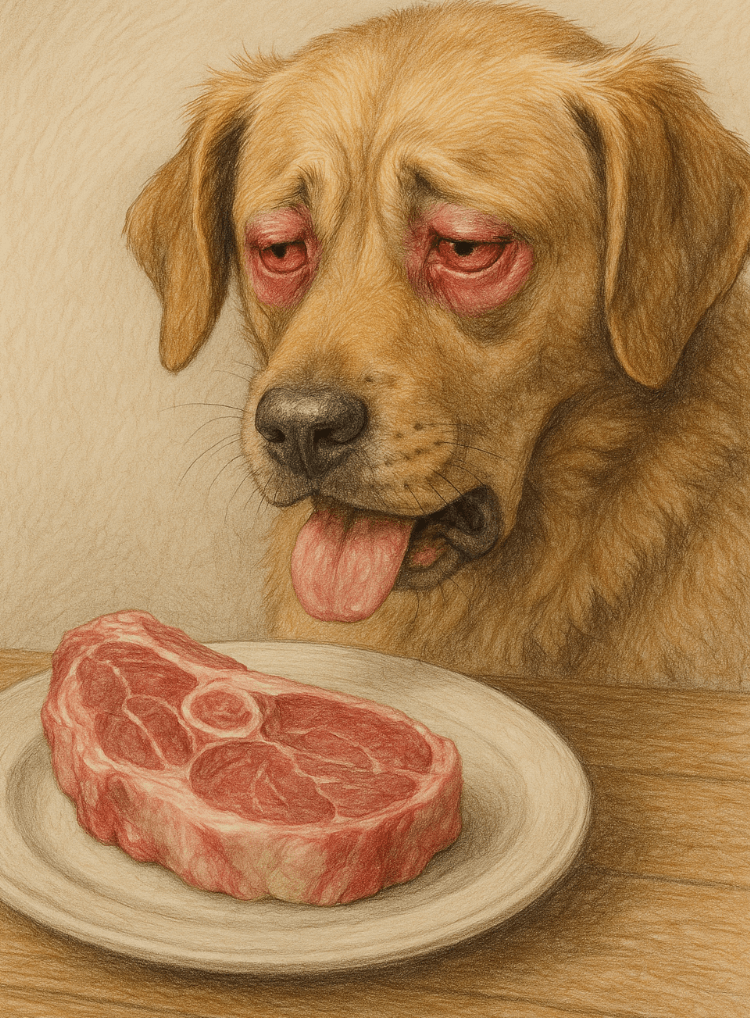
Symptoms of Lamb Allergy | Ways to Manage Lamb Allergy |
|---|---|
Itchy skin and hot spots | Switch to a hypoallergenic diet |
Ear infections | Use supplements to support gut health |
Gastrointestinal issues | Rotate protein sources regularly |
Red or inflamed paws | Bathe with soothing medicated shampoos |
Chronic yeast infections | Consult a vet for allergy testing |
How to Diagnose a Lamb Allergy in Dogs
Diagnosing a lamb allergy requires careful observation and professional guidance. Here’s how you and your vet can pinpoint the issue.
Elimination Diet Trial:
Remove all potential allergens from your dog’s diet and reintroduce lamb gradually to observe any reactions.Food Journaling:
Keep a detailed record of what your dog eats and any symptoms that arise to identify patterns.Veterinary Consultation:
Schedule an appointment with your vet to discuss symptoms and rule out other conditions like environmental allergies.Allergy Testing:
Blood tests or intradermal skin tests can help confirm whether your dog is allergic to lamb or other proteins.Monitor Symptoms Over Time:
Pay attention to changes in behavior, coat condition, and overall health during the diagnostic process.
A thorough diagnostic approach ensures accurate identification of the allergen and appropriate treatment.
Dietary Alternatives for Dogs with Lamb Allergies
If your dog is allergic to lamb, there are plenty of alternative protein sources and dietary options to keep them healthy and satisfied.
Novel Proteins:
Consider proteins like duck, venison, or kangaroo, which are less likely to trigger allergies.Hydrolyzed Protein Diets:
These specialized diets break down proteins into smaller molecules, making them less recognizable to the immune system.Grain-Free Options:
Grain-free formulas often use unique proteins and carbohydrates, reducing the risk of cross-reactivity.Limited Ingredient Diets (LID):
LIDs contain minimal ingredients, making it easier to avoid allergens while providing balanced nutrition.Homemade Meals:
Preparing meals at home allows you to control every ingredient, ensuring your dog avoids lamb entirely.
Switching to these alternatives can help alleviate symptoms and improve your dog’s quality of life.
Tips for Preventing Food Allergies in Dogs
Preventing food allergies starts with mindful feeding practices. Here are some tips to reduce the risk of your dog developing sensitivities.
Rotate Protein Sources Regularly:
Avoid feeding the same protein for extended periods to minimize overexposure.Introduce New Foods Gradually:
Slowly incorporate new ingredients into your dog’s diet to monitor for adverse reactions.Choose High-Quality Ingredients:
Opt for dog foods made with natural, wholesome ingredients to support overall health.Support Gut Health:
Probiotics and prebiotics can strengthen your dog’s digestive system and reduce the risk of allergies.Avoid Artificial Additives:
Steer clear of foods containing artificial colors, flavors, or preservatives, which can irritate sensitive systems.
By following these tips, you can help protect your dog from developing food allergies.
Understanding Cross-Reactivity in Dog Allergies
Cross-reactivity occurs when a dog’s immune system reacts to similar proteins in different foods. Here’s what you need to know about this phenomenon.
Shared Protein Structures:
Proteins in lamb, beef, and venison may share molecular similarities, leading to overlapping allergies.Testing for Cross-Reactivity:
Allergy tests can identify related proteins that may trigger reactions in your dog.Avoiding Related Proteins:
If your dog is allergic to lamb, consider avoiding other red meats until further testing is done.Exploring Non-Meat Proteins:
Plant-based proteins like peas or lentils can serve as safe alternatives for dogs with multiple meat allergies.Consulting a Veterinary Nutritionist:
A specialist can design a diet plan tailored to your dog’s unique needs and sensitivities.
Understanding cross-reactivity helps you make informed decisions about your dog’s diet.
The Role of Supplements in Managing Food Allergies
Supplements can play a crucial role in supporting dogs with food allergies. Here are some options that may benefit your pup.
Omega-3 Fatty Acids:
Fish oil supplements can reduce inflammation and improve skin and coat health in dogs with allergies.Probiotics:
Probiotics promote a healthy gut microbiome, strengthening your dog’s immune system and reducing sensitivity.Digestive Enzymes:
These enzymes aid in breaking down food, making it easier for your dog to digest and absorb nutrients.Zinc Supplements:
Zinc supports skin health and can alleviate symptoms like dryness and irritation caused by allergies.Antioxidants:
Vitamins C and E combat oxidative stress and support overall immune function in allergic dogs.
Incorporating these supplements into your dog’s routine can enhance their well-being and complement dietary changes.
Frequently Asked Questions About Lamb Allergies in Dogs
Is lamb a common allergen for dogs?
No, lamb allergies are relatively rare compared to beef, chicken, or dairy, but they can still occur.
Can puppies be allergic to lamb?
Yes, puppies can develop food allergies, though they’re more likely to experience sensitivities as they age.
How long does it take to see results from an elimination diet?
Most dogs show improvement within 8-12 weeks of starting an elimination diet.
Are lamb-based treats safe for dogs with allergies?
Avoid lamb-based treats if your dog has a confirmed lamb allergy, as even small amounts can trigger symptoms.
Can lamb allergies be cured?
While allergies cannot be cured, they can be managed effectively through diet and lifestyle changes.
Managing Lamb Allergies for a Happier, Healthier Dog
While lamb is a nutritious protein for most dogs, it can occasionally trigger allergies in sensitive individuals. Recognizing the signs, understanding the causes, and exploring dietary alternatives are key steps in managing this condition. With the right care and guidance from your veterinarian, you can ensure your dog enjoys a balanced diet free from discomfort. Remember, every dog is unique—what works for one may not work for another. By staying attentive to your dog’s needs and making informed choices, you can provide them with the best possible care and keep their tail wagging happily.
Rimadyl for Dogs: Best 7 Expert Tips! Discover expert advice on using Rimadyl safely, managing pain, and improving your dog’s mobility with trusted veterinary insights.
Can Dogs Have Tylenol for Pain? Best 7 Expert Tips! Discover the risks, safe alternatives, and expert advice on managing your dog’s pain effectively while avoiding harmful medications.
Understanding Hemophilia in Dogs: Best 7 Expert Tips! Discover expert advice on managing hemophilia, recognizing symptoms, and ensuring your dog’s well-being with practical care strategies.
Understanding Dog Sensitive Skin: Best 7 Expert Tips! Discover expert advice on managing dog sensitive skin, relieving irritation, and improving your pup’s comfort with practical solutions.

